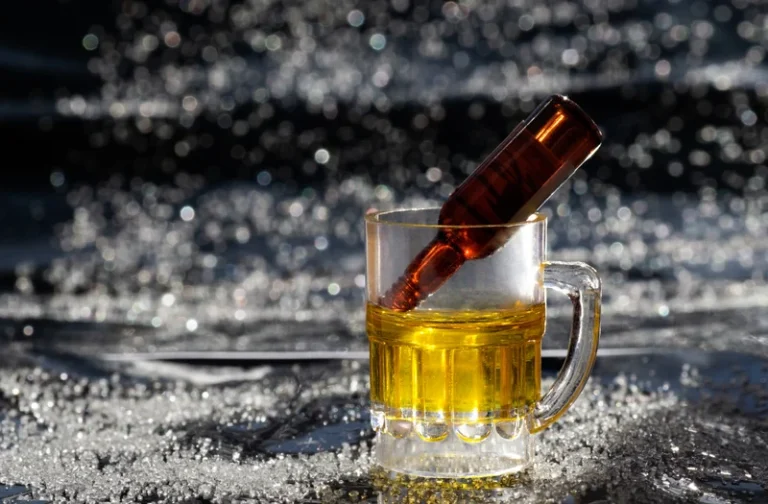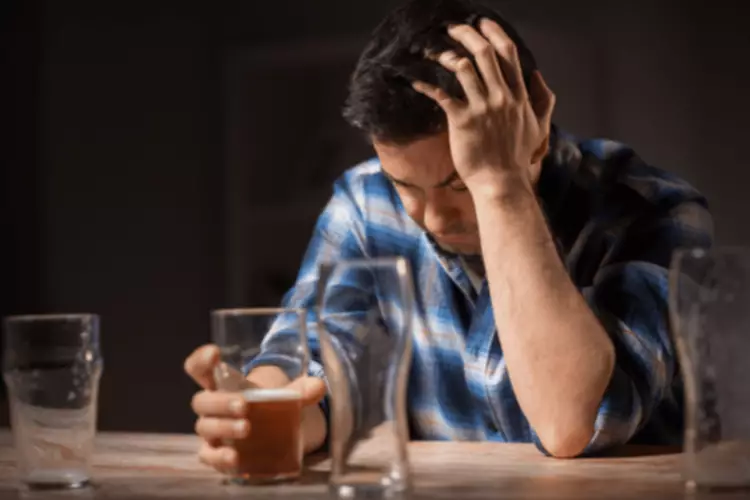Psychological Dependence on Alcohol

Alcohol dependence can be caused by:
- Prolonged stressful situation, chronic fatigue
- Predisposition to anxiety
- Depressive states occurring not only as a temporary reaction but also as a disease
- Problems in personal life, such as emotional and sexual dissatisfaction
- Lack of understanding in the family
- Lack of social belongingness (when a person does not have a permanent job, family, regular interests and favorite activities)
- State of loneliness, boredom, and unfulfillment
- Social pressure.
Of course, there are too many reasons for the formation of alcohol dependence to be able to list them here, but there is a definite pattern. Most reasons behind excessive drinking are not physical, but rather psychological (mental and emotional) in nature. Thus, let’s first discuss psychological dependence on alcohol.

What is psychological dependence?
What is a psychological dependence on alcohol? It is a pathological craving for alcoholic beverages. In simple terms, it is love for drinking and enjoyment of the state of alcoholic intoxication. Psychological dependence on alcohol is manifested, first of all, in a desire to achieve a state of intoxication and euphoria and not to a specific alcoholic beverage. This craving becomes a frequent pleasant need, sometimes an obsession. However, alcohol consumption may not be frequent.
Psychological dependence on alcohol is formed in the brain and is associated with the neurotransmitter metabolism of dopamine and gamma-aminobutyric acid (GABA). Under the influence of alcohol, neurons (brain cells) become accustomed to a specific state of arousal, which in cases of severe intoxication can be compared with a euphoria experienced during the use of narcotic substances.
To reach a comfortable state, a person increasingly needs alcohol and an increase in the amount of alcohol drunk. As a result, loss of dose control becomes a serious symptom of the development of alcohol disorder. In a state of alcoholic intoxication, control over the situation disappears, behavior changes, and in the morning, one may not remember some events that occurred during the state of intoxication.
It should be noted that psychological dependence on alcohol is a symptom observed at all stages of an alcohol use disorder, which only intensifies over time. All other symptoms of alcoholism, including physiological symptoms of alcoholism, are secondary, occur later, and may even disappear over time.

Take back control of your life and start on the road to recovery now.
What is physiological dependence?
Physiological dependence on alcohol is added to an already existing psychological dependence on alcohol. Physical dependence in many respects is energetic because it is caused by the consumption of high concentrations of an easily absorbed alcoholic product. Regularly consumed alcohol is “incorporated” into the carbohydrate metabolism of the body (alcohol is also a carbohydrate). It becomes a source of energy and building material in intracellular metabolism.
Discontinuation of alcohol supply to the body causes a malfunction in the metabolism, which manifests itself in the form of a deficiency of endogenous (internal) alcohol, increased activity of alcoholic enzymes, and inability of the body to maintain natural psychophysiological processes without alcohol coming from outside.

The most common physiological symptoms of alcoholism or alcohol dependence can be easily observed when a person has the so-called alcohol withdrawal syndrome. These include the following:
- tremors
- sweating
- fluctuations in heart rate and blood pressure
- nausea and vomiting
- headaches
- pain in all parts of the body
- weakness
- insomnia.
When a physiological need for alcohol appears, it is similar in strength to thirst and hunger, uncontrollable, and practically unrestrained. Drinking alcohol leads to a temporary improvement in the condition, withdrawal symptoms subside. Physical dependence is also characterized by the following phenomenon: in a state of light intoxication, the individual will show better results during mental and physical testing than in a sober state.
Conclusion
After taking alcohol, a person feels euphoria. Anxiety decreases, the level of self-confidence increases, and it becomes easier to communicate. Basically, people are trying to use alcohol as a simple, affordable, fast-acting antidepressant, and anti-stress drug. However, drinking alcohol is not natural and physiological.
Over time, the need for alcohol increases. A person, who is not yet an alcoholic, begins to regularly consume alcohol, not noticing gradual changes, such as an increase in the required dose. When these changes become significant, it turns out that psychological dependence on alcohol is already combined with physical dependence, and quitting drinking alcohol is very difficult or almost impossible without professional help and support.




